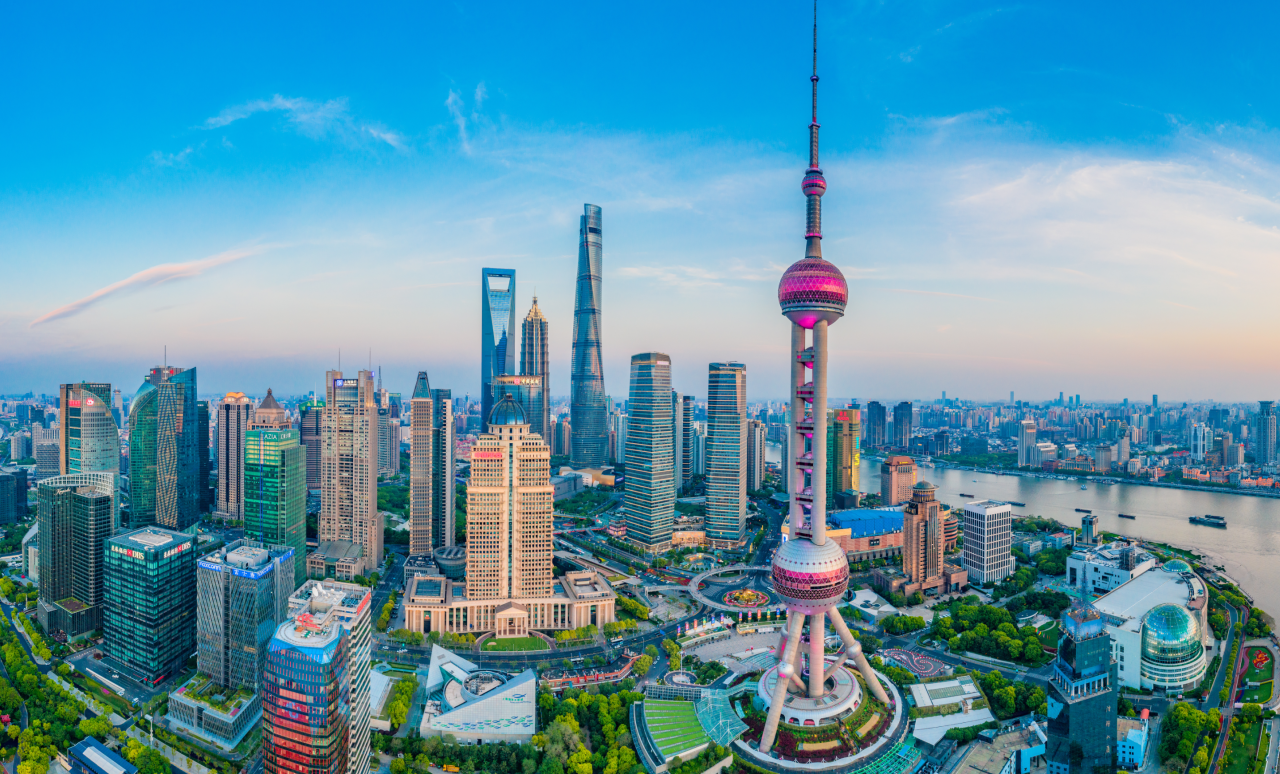Is China Invincible?

Many in the West are convinced that modern China is an invincible regime. We watched China transition in just a few decades from a poor agricultural society into a manufacturing and industrial colossus. We witnessed Xi Jinping become the undisputed leader of China in 2013 and emerge even more powerful than Mao Zedong at the height of his reign. We know that Xi’s ultimate goal is for China to replace the United States as the world’s economic and military leader. What could possibly stop China from achieving this goal? Actually, there are several significant developments — I call them MaxTrends® — that pose potential breaking points to China’s and Xi Jinping’s lofty ambitions. The truth is that China below the surface is much more fragile than it outwardly appears. China is definitely not invincible.
The United States is merely months away from its next highly divisive presidential election, and the candidates already are fiercely debating many issues. What I find both surprising and disturbing is that America’s relationship with China has taken a back seat to more domestically oriented topics so far. The candidates don’t seem to have an appreciation that America’s biggest economic and military competitor now, and for the foreseeable future, is the People’s Republic of China. It is clear that every initiative Xi has undertaken since assuming power has been directed toward the overriding goal of China displacing the United States as the world’s leading power. Frankly, addressing the challenges China presents to America’s economy and national security is far more important to our future than many of the domestic issues being debated.
Facing China head-on requires a thorough understanding of not only China’s strengths but also its weaknesses. While China grew exponentially since the early 1980s (to the tune of 8 to 12 percent annually), that growth pattern was significantly, and I believe permanently, curtailed beginning in 2020. China’s economy this year is projected to grow 5 percent, at best, and that is being overly optimistic. A stagnant economy is just one example of the challenges the Chinese government faces as it attempts to rapidly expand its military capacity and economic reach around the world.
One critical barrier to Xi’s global ambitions is the dramatic demographic shifts facing China itself. China’s population of 1.4 billion people is expected to drop drastically over the next 40 years. This reality is a direct, and obviously unintended, result of China’s “One Child” policy that the ruling elite imposed on Chinese families in the early 1980s. China’s birth rate is now so low that there is no way China, at this point, can reverse this decline. In the not-too-distant future, China will face a serious labor shortage of younger workers alongside rapidly growing numbers of retirees who have no social safety net. Unlike the United States with its Social Security system, China has no government program in place to support retired workers, forcing retirees to rely on personal savings or help from family members.
Yet another breaking point for China is Taiwan. It is indisputable that Xi has personally placed the highest priority on Mainland China reasserting its dominance over Taiwan. Not known for his patience, Xi has spent — and continues to spend — seemingly bottomless resources on building up China’s military capabilities and strategic presence throughout the South China Sea. Xi Jinping appears to be looking for reasons to justify an invasion of Taiwan. The problem is that if a Chinese invasion occurs, it would have a devastating effect on China’s export economy and international reputation. This dilemma presents a very delicate balance for Xi.
China self-imposes its own problems at times, such as its rejection of foreign investment and insistence on building up its own technology base. In years past, foreign companies with significant capital resources would find themselves drawn to China with its promises of high-quality manufacturing, seamless exporting, inexpensive labor pool, and a friendly Chinese government. Factories sprang up everywhere, manufacturing flourished, and Chinese exports began to dominate the global trade system. China raked in trillions of dollars, yen, euros and other currencies, enabling it to build an enviable infrastructure of modern railroads, airports, roads and cities. China grew fast and emerged as a center of global trade. Now, under Xi Jinping, the Chinese government has inexplicably reversed course and adopted policies that directly favor domestic Chinese companies and make it more difficult — at times impossible — for foreign investors to enter the market. Whatever Xi’s intentions, by taking this stance, China has imposed a major drag on its economy.
Another little-appreciated weakness in China is its currency, the renminbi (RMB). For decades, China skillfully manipulated its outlier currency by pegging the value of the RMB to the U.S. dollar. The rationale behind this was that, by controlling the convertibility of the RMB, Chinese manufacturing companies held a strong competitive advantage over foreign competitors. While China continues this strategy, it is turning less and less economically favorable. If China seriously expects to be a global power, pegging the value of the RMB to the U.S. dollar should become a thing of the past. In July 2015, China did switch from a strictly fixed exchange rate to a more hybrid floating rate, but that was more illusion than reality. So far, Xi appears to be uninterested in changing anything regarding the RMB and continues to manipulate China’s currency for its own benefit.
Without question, corruption exists in every country around the world, including the United States. China faces unique challenges in this regard. Every aspect of China — political, social, economic and military — is controlled by the Chinese Communist Party (CCP), which has roughly 90 million members. While Xi Jinping has publicly attempted to tackle China’s internal corruption, the challenge is that there is no counterforce to the CCP. With such a small percentage of the population controlling the world’s second largest economy, corruption both small and large continues to bedevil China’s government.
For three years now, the news has been full of stories about China’s failing real estate sector. Beginning in the mid-1990s, in an effort to jump-start home building and apartment growth, Chinese individuals were allowed for the first time to enter into long-term property leases (75 years or more). The drive to own real estate exploded among the Chinese public. Today it is estimated that about 70 percent of the savings of Chinese individuals is invested in real estate, and about a third of China’s economy is based upon the residential and commercial real estate sectors. Much of that development was spurred on by private real estate developers in China who for two decades borrowed vast amounts from Chinese banks and partnered with local provincial government officials anxious to grab onto a seemingly irreversible trend. Then came 2020. In just a few years, major Chinese real estate developers such as Evergrande (once the largest private real estate developer in China) and Country Garden have faced significant financial challenges or have gone bankrupt. China’s drive toward economic growth has been drastically curtailed because literally millions of apartment buildings and housing units now stand empty. This is not a problem that China can solve anytime soon.
Perhaps the final but ultimately most serious challenge facing China is its ever-worsening pollution. China’s toxic air receives most of the public attention because of its immediacy. Many foreign embassies and consulates, including the United States, have been forced to limit embassy workers assigned to China as air pollution continues to worsen throughout its major cities. However, even more concerning is China’s critical water shortage. This is an increasingly urgent problem facing both agricultural areas and industrial regions. China’s inability to come up with solutions to its pollution problems threatens its ability to compete on a global scale.
Lest anyone reading this article deduce that China must be on the precipice of a collapse, that is absolutely not the case. While China faces very serious challenges, it remains a large and formidable competitor to the United States. One area of direct and continuing concern to the U.S. is China’s cyber capabilities. Much like Russia, North Korea and Iran, the Chinese government for years has engaged in offensive cyber activities. To paraphrase what the U.S. Cybersecurity and Infrastructure Agency (CISA) published in its 2023 Annual Threat Assessment, China represents the greatest cyber espionage threat to the U.S. government and private sector. Chinese cyber attacks are on the rise and no individual, company, or government official is immune.
It was widely reported when top-level U.S. government officials (U.S. Ambassador to China Nicholas Burns, Secretary of Commerce Gina Raimondo, and Assistant Secretary of State for East Asia Affairs Daniel J. Kritenbrink) were hacked during an official visit to China last summer. In response, CISA Director Jen Easter drew a stark line in the sand when she commented, “I hope that people are taking seriously a pretty stark warning about the potential for China to use their very formidable capabilities in the event of a conflict in the Taiwan Straits to go after [the United States’] critical infrastructure.” While she was speaking to that particular hacking incident, the message applies to China’s creeping shadow over America. Going back to my comments earlier in this article about the upcoming U.S. presidential election, America must make China its highest priority by taking seriously its economic and military threats. In sports terms, we must keep our eye on the ball or risk losing in spectacular fashion.

















